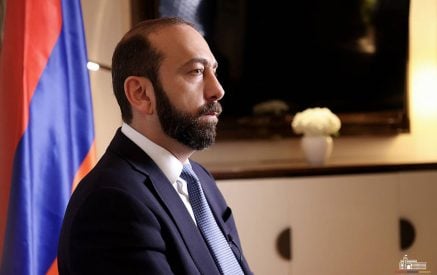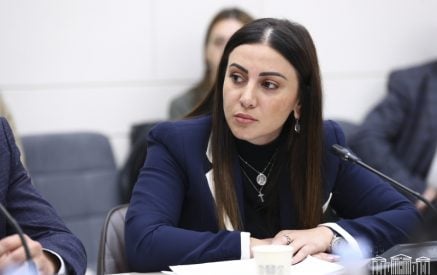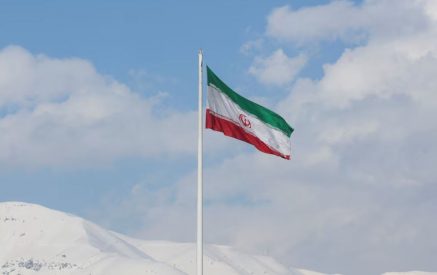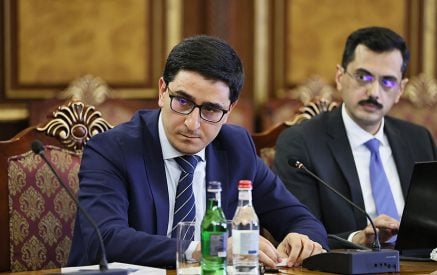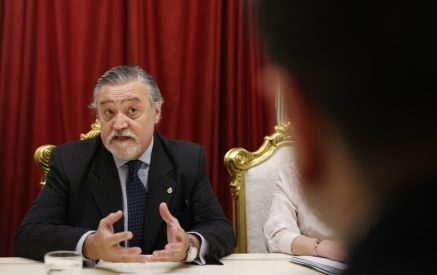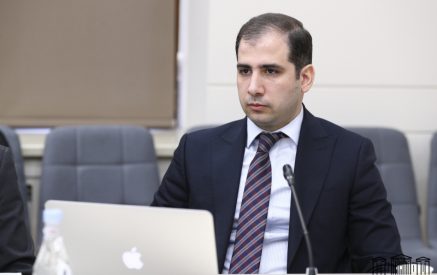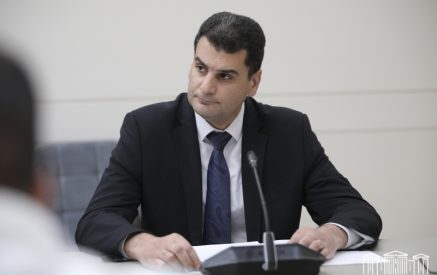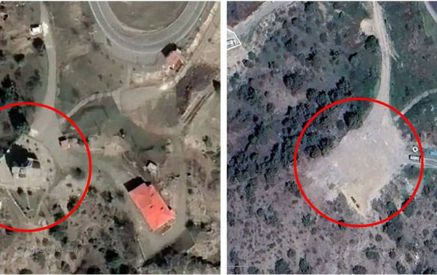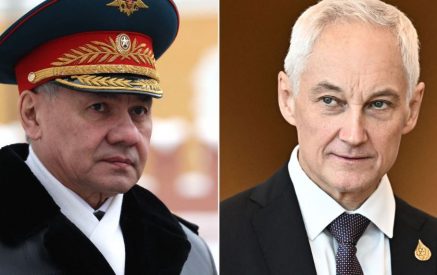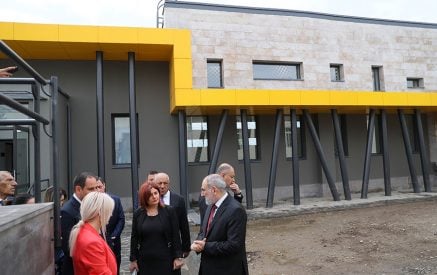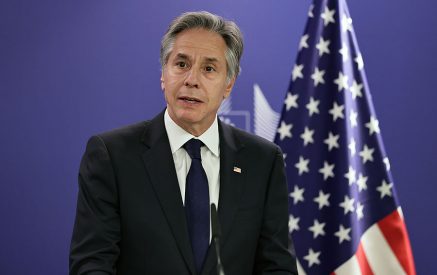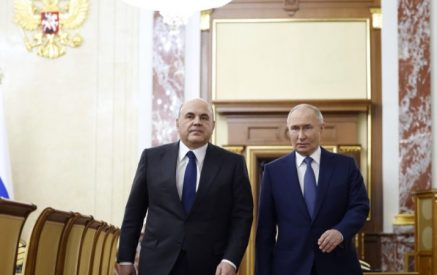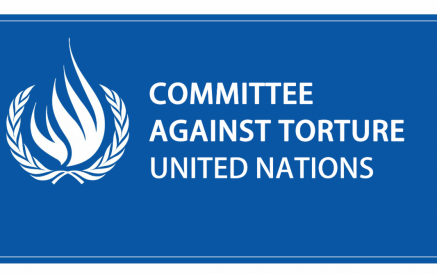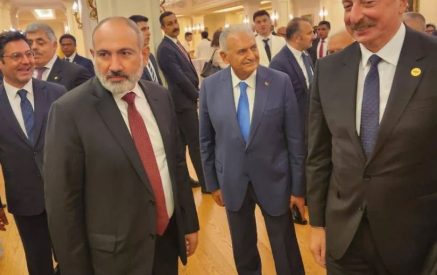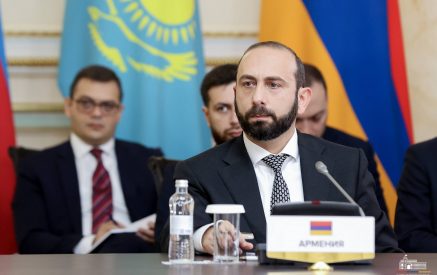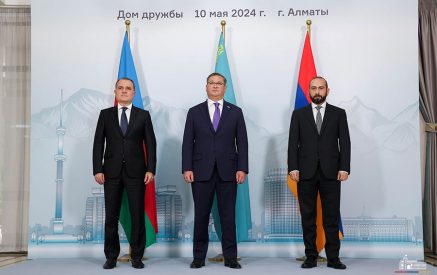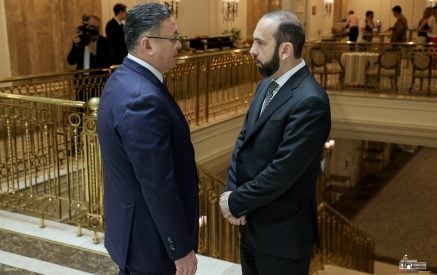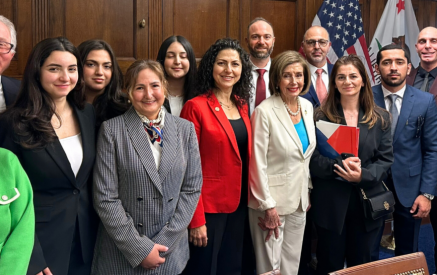Foreign investments very often are accompanied by political, legal and economic risks which arise in the relationships of the investor and the host-State Governments and other stakeholders in the entire life-cycle of investments: admission, establishment and post establishment. The existence of these risks is having a serious impact on the attractiveness of countries for foreign investors.
The political, legal and economic risks may arise due to corruption, cronyism, bureaucratic delays, deviant interpretation of laws or unexpected changes of laws to the detriment of an investor, weak legal and regulatory framework, non-independent local dispute resolution systems, perpetual audits by governments, armed conflicts in the region, revolutions, civil strife.
The above-mentioned list of risks is not exhaustible, since the risks are not only arising out of weak legal and economic institutions of a country, but also from Government`s detriment and reverse actions which may take different forms. At the same time, Governments may follow some legitimate objectives and exercise sovereign power to legislate without intent of damaging investments, but with such actual effect.
In order to mitigate potential risks, foreign investors may rely on international legal mechanisms, such as Bilateral Investment Treaties (BITs) and Treaties with Investment Protection provisions (TIPs).[1] These Treaties are of highest importance, as most of them regulate non-discriminatory entry and establishment of investments (Most Favored Nation and National Treatment on establishment), provide for non-discrimination treatment on post-establishment, protect from unlawful expropriation, grant Fair and Equitable Treatment (FET), ensure physical security of investments through the provisions of Full Protection and Security (FPS), ensure free repatriation of capital and other protection mechanisms. Most importantly, investors have the opportunity to sue States in an international, neutral forum, if their rights are violated and gain enforceable award to recover damages. This is done through the Investor-State or State to State Dispute Settlement mechanisms (ISDS)
However, this does not mean that risks persist only for investors, since the State, in an attempt to use BITs and TIPs to bring necessary financial resources, advanced technologies, production facilities to create jobs and generate economic development is exposing itself to a risk of being sued for multi-millions because of “investor-harming” measures.
ARMENIA WITHIN EU NEW INVESTMENT POLICY AND PROSPECTS OF CONCLUSION OF A NEW AGREEMENT
The EU is a highly complex and multilayered organization, the structure of which has been developing for many decades through subsequent reforms of founding treaties. Within the organization, EU institutions and Member States are acting strictly in accordance with conferred powers (competences) in the treaties. Based on Lisbon Treaty, which is the last reform of EU founding Treaties, the EU is conferred with some powers, including powers to conclude international agreements with third States․[2] But these conferred powers are not unlimited. The EU may conclude international agreements alone, without participation of Member States, only within attributed Exclusive Competences[3], while the competences, which are not Exclusive, are categorized as Shared Competencies,[4] where the EU Member States can also conclude international agreements.[5]
The Lisbon Treaty has brought important changes in the EU’s international investment policies. Foreign Direct Investments (FDI) have been brought within the scope of the EU Common Commercial Policy (CCP)[6], which is an exclusive competence of the EU, and where only the latter can conclude international treaties.[7] Before the entry into force of the Lisbon Treaty the protection of FDIs and the conclusion of investment protection treaties were in the domain of Member States and were being concluded by the EU Member States.[8] This can also be clearly seen from the relevant provisions of Partnership and Cooperation Agreement of 1999 (PCA), which in its respective part is referring to cooperation for the conclusion of agreements for promotion and protection of investments between Armenia and EU Member States, bearing in mind respective powers and competences.[9]
In July 2010 an important opinion was published – “Towards a New Comprehensive European International Investment Policy,”[10] which discussed the EU’s new approach to foreign investment policy in the light of the newly derived competences on FDIs. It addresses the need to improve the BITs to ensure higher standards of protection for the EU investors, addresses short-term and long-term objectives of the EU policies in the field. One of the most important changes, which can be seen in the communication, is the shift from the post-establishment protection to pre and post-establishment protections.[11] At the same time, the Commission has proposed a draft Regulation to establish transitional arrangements relating to existing agreements of EU Member States and third countries. The regulation has come into force on 12 December 2012.[12] It allows to keep in force existing BITs until a new treaty between the EU and the same third State comes into force.[13] At the same time, the EU may permit conclusion of new BITs by Member States, in accordance with the procedures and conditions provided under the Regulation.
However, existence of Exclusive Competence on FDI does not mean that EU can act alone and conclude BITs or TIPs with third countries. The negotiators of investment protection treaties are defining investments in a way to cover broad range of investors and their investments, since the foreign investments do not have to be direct investments at all times and may take different forms (non-direct investments). Thus, in addition to FDI, treaties also include portfolio investments, which in 2017 were recognized as Shared Competence by the European Court of Justice (ECJ).[14] Moreover, ISDS was also recognized as a Shared Competence. The recognition of ISDS and non-direct investments as shared competences have been derived in the case of EU-Singapore Free Trade Agreement (FTA), where European Court of Justice (ECJ) decided that the FTA cannot be concluded solely by EU, as ISDS and non-direct investments are shared competences. This precludes the EU of being a sole actor to conclude investment protection treaties, as for the EU it will not be reasonable to conclude agreements, which do not contain ISDS mechanism and protection of non-direct investments.
Since the above-mentioned factors create a situation where Exclusive Competences of the EU and Shared Competences converge, under such circumstances the EU, together with Member States, is concluding so called “mixed agreements”, which requires joint participation of the EU and each Member State in negotiation, signing, ratification and implementation of agreements. Mixed Agreements are highly important tools, which require longer periods of signing and ratification, and from the EU perspective, it eases complex debates on competences and provide for solid legal base for the conclusion of agreements. The later is of highest importance, since conclusion of agreements with unproper legal base will make an agreement void.
Comprehensive and Enhanced Partnership Agreement of 2017 (CEPA)[15] has also been concluded as “mixed agreement”, but it does not include substantive investments protection provisions, which would perfectly fit within the format of the agreement. Instead, it includes only one article which opens an opportunity to supplement the agreement with investment protection provisions after the full ratification of CEPA, and full review of the existing environment and the legal framework for investments within a 3-year period after the entry into force of the treaty.[16] For the matters related to FDI`s the review period has already begun from the date of provisional application of CEPA.[17] The ratification process could be facilitated through obtaining Council Decision which will set out timeline for the EU Member States to finalize it, but no action in this respect was taken by the Government of Armenia which makes ratification timeline quiet unpredictable and, subsequently, it is still not clear when the review process will be launched and finalized.
The inclusion of investment protection provisions into CEPA is of highest importance. The provisions will spread on investments from all EU Members instead of 16 Member States now. Unification of 28 possible agreements with all EU Member States in one text will make implementation and interpretation more predictable and clearer for foreign investors and the States. It will open an opportunity for Armenia to review its 16 BITs, which have many deficiencies. It is of highest importance for Armenia to recalibrate its very generally worded protection guarantees, which makes potential interpretation by arbitral tribunals very broad, in detriment to Armenia. In addition to recalibrating existing protections, it is necessary to supplement the agreements with provisions, which will allow Armenia to act more freely in environment protection matters.
INVESTMENT PROTECTION SUBSTANTIVE PROVISIONS IN ARMENIA – EU MEMBER STATES BITS
- Pre-Establishment of Investments
Since its independence Armenia has signed and ratified 43 BITs[18], 16 out of which—with European Union Member States[19]. As is the case with most of the world, Armenia`s BITs with EU Member States (with some exceptions) provide for non-discrimination only after the establishment of investments. The non-discriminatory admission and establishment of investments are left out of the scope of protections, which means that Armenia is maintaining controlled-entry model of BIT. In the controlled entry model all rights of entry are contingent upon prior approval by the public authorities of Armenia. States have the sovereign right to regulate entry and admission of foreign investors into their economy unless they have provided otherwise in an international agreement and they may seek to adopt controlled entry model for a variety of reasons, including for national security reasons, unwillingness to allow foreign participation in strategically important economic sectors, for protection of environment.
The BIT between Armenia and Finland is the only one, which derogates from the controlled entry model and commits Armenia to “full” liberalization of entry and establishment of investment, since it grants Most Favored Nation (MFN) treatment on establishment and acquisition, which means that Armenia cannot treat Finnish investors less favorably than the investors of any third State to establish and acquire investments. At the same time, the BIT provides for National Treatment on acquisition, which means that Armenia shall treat Finnish investors equal to its domestic investors when it comes to acquisitions. This means that Finnish investors are gaining access to those sectors of economy which are open to domestic investors of Armenia, on equal footing with Armenian investors. While comparing with the practice of other States, which also maintain full liberalization model, for example Canada and the USA, as well as in case of North American Free Trade Agreement (NAFTA) we can see a highly important difference: they provide for exceptions, when it comes to strategically important sectors of their economies. Armenian BITs do not provide for such exceptions. Moreover, Armenia has provided access to foreign companies in strategically important sectors such as energy sector, transportation, water distribution and telecommunications, where some of the sectors are controlled by Russian State-owned enterprises.
Armenia is also maintaining very liberal approach, when it comes to its Schedule of Specific Commitments under the General Agreement on Trade in Services (GATS) of the World Trade Organization (WTO) by imposing minimum limitations in the mode 3 Commercial Presence which is well connected to the establishment of foreign companies and investments from all WTO Member States in the territory of Armenia.[20] Under its horizontal schedules of the GATS (mode 3 – Commercial Presence) it provides no limitation on market access and provides for few national treatment limitations connected with the ownership of land by foreign natural persons (legal entities are allowed to own land) and subsidization of legal entities. Further in the schedules it provides very few limitations on market access and NT. [21]
All this shows different, to some extent incoherent and inconsistent approaches of Armenia, when it comes to entry and admission of foreign investments.
- Post-Establishment of Investments
Non-discrimination principles are also available after the establishment of investment, and depending on specific formulations in different treaties, they may relate to specific set of actions such as management, operation, maintenance, use, enjoyment, sale and liquidation of an investment.
Further Armenian BITs provide for protection against unlawful expropriation. It is important to mention, that expropriation or nationalization is not a prohibited action per se. There are several conditions, which shall be respected in order to consider these actions to be lawful. It shall be in public interest, on non-discriminatory basis, in accordance with due process of law, against payment of adequate and effective compensation. The treaties protect not only against direct expropriation, e.g. physical seizure of assets of the investors, or forcible transfers of property titles, which rarely happen in modern times, but also against indirect and having an effect equivalent to expropriation or nationalization measures. The cases of indirect expropriation may arise, when the investor is retaining the nominal ownership of the property but is deprived of the use and benefit of it, or property rights are diminished but nominal ownership is preserved. Indirect expropriation can take different forms, one of which is the so-called creeping expropriation, which may arise due to set of actions, where actions separately taken may not be considered as expropriation, but their combined effect destroys the economic value of investments. Indirect expropriation may also intervene with the States’ regulatory autonomy and oblige States to compensate investors for passing regulations which have public welfare purpose.[22] To prevent this kind of situation, Armenia in its future BITs negotiations shall take these factors into consideration and include more detailed provisions, which will define actions that cannot be considered as indirect expropriation and provide for procedures to establish existence of indirect expropriation.
Another important standard is Fair and Equitable Treatment (FET), the normative content of this standard hasn’t been established yet, and broad wording is leading to broad interpretation of the standard. Many Armenian treaties are not connecting FET with the international law (autonomous FET), which may lead to broad interpretation if dispute arises between investors and the Government. States may be found violating FET if they have failed to ensure stable and predictable legal framework, denied due process to investors, in cases of harassment, coercion, abuse of power, bad faith conduct, arbitrary, discriminatory or inconsistent actions, in cases where a State made specific representation to the investors and violated the legitimate expectations of the investor.[23]
Another post-establishment protection standard, which relates to the physical security of investments, is the Full Protection and Security standard, which relates to State’s failure to protect investors’ property from actual damage caused by State officials, or by private parties. Under this standard a State shall exercise due diligence and take reasonable actions to prevent injuries to foreign investors. Even if actions of a State were not successful and did not prevent the injury, the obligation to grant FPS would be met.
During the past years investment protection provisions and dispute settlement mechanism, which are designed to ensure enforceability of those protection provisions, have been heavily criticized. There were serious concerns expressed provisions may sometimes conflict with State`s sovereignty and ability to regulate, since they defined in broad terms, which is leading to broad interpretation in detriment to States. In many cases this has led to multimillion compensations, and taking into consideration small budget of Armenia, this may have very harsh consequences. A lot of criticism was also devoted to coherency and consistency of decisions of arbitral tribunals. They often decide cases in different manners while interpreting the same provisions with almost identical facts.[24] It is a huge problem to challenge the decisions of arbitral tribunals on merits. It is nearly impossible to challenge the decisions rendered by tribunals under International Center of Settlement of Investment Disputes (ICSID). In case of ad-hoc arbitration, there are possibilities to challenge decisions at the Courts of place of arbitration, but the options are also very limited there depending on the limitations of national law at the place of arbitration.
United Nations Conference on Trade and Development (UNCTAD) shows that Armenia has been a party to a dispute for 3 times. Presently, new arbitrations are initiated against Armenia. At the same time, the existing information on arbitration cases against Armenia may not be final, as ISDS are often conducted confidentially. The lack of transparency is also seen in case of Armenia. Investment Arbitration Reporter (IA Reporter) in 2012 has referred to the Government of Armenia to disclose the award rendered in Investment Corp v Republic of Armenia, where the decision was in favor of Armenia, but they claim that the Armenian Government ignored the requests.
Issues touched upon in the article show that Armenia does not have coherent, and clear investment policies and highly important reforms shall be initiated. Developments taking place in the field of international investment law and ISDS didn’t bring to changes in policies in Armenia. We shall develop our BIT model to frame the level of protection we grant to foreign investors and balance them with our regulatory autonomy.
“Democracy, Security & Foreign Policy” Program (NED)
The Armenian Institute of International and Security Affairs (AIISA)
[1] Preferential Agreements and specialized agreements such as Energy Charter Treaty which also include substantive investments protection provisions.
[2] Treaty of the Functioning of the European Union (Lisbon Treaty) Art. 216 (1)
[3] Ibid. Art. 2(1)
[4] Note: EU Member States may exercise Shared Competences if EU has refused or ceased exercising them. In addition to exclusive and shared competences, EU has competence to support, coordinate or supplement the actions of the Member States.
[5] Ibid. Article 2(2)
[6] Ibid. Article 207 (1)
[7] Ibid. Article 3 (e)
[8] EU Member States have signed and ratified around 1200 Bilateral Investment Treaties
[9] Partnership and Cooperation Agreement between the European Communities and their Member States, of the one part, and the Republic of Armenia, of the other part (PCA) Art 47(1), 47(2)
[10] Communication from the Commission to the Council, the European Parliament, the European Economic and Social Committee and the Committee of the Regions- Towards a Comprehensive European International Policy COM (2010) 343 Final
[11] Ibid page 5
[12] Regulation (EU) No 1219/2012 of the European Parliament and of the Council of 12 December 2012 establishing transitional arrangements for bilateral investment agreements between Member States and third countries
[13] Ibid. Article 3
[14] European Court of Justice (ECJ) Opinion 2/15 of 16 May 2017
[15] Comprehensive and Enhanced Partnership Agreement between the European Union and the European Atomic Energy Community and their Member States, of the one part and the Republic of Armenia, of the other part (CEPA)
[16] Ibid. Article 203
[17] Council Decision (EU) 2018/104 of 20 November 2017 on the signing, on behalf of the Union, and provisional application of the Comprehensive and Enhanced Partnership Agreement between the European Union and the European Atomic Energy Community and their Member States, of the one part, and the Republic of Armenia, of the other part (Council Decision) Article 3 (e) and CEPA Article 385 (7)
[18] full list of the Treaties (last accessed on 20 Jan. 2019)
[19] Agreements of Promotion and Protection of Investments between the Republic of Armenia and Austria, Belgium-Luxembourg Economic Union (BLEU), Bulgaria, Finland, France, Germany, Greece, Italy, Latvia, Lithuania, Netherlands, Romania, Spain, Sweden, United Kingdom (last accessed on 20 Jan. 2019)
[20] Trade in Services – Armenia – Schedule of Specific Commitments in Services (last access on 14 Feb.2019)
[21] Legal documentation and certification services (CPC 8613)- limitation on market access and NT to Notary services, which shall be supplied by the State, Auditing service (CPC 862)- limitation only on market access- Enterprises must be sole proprietorships or partnerships, Technical testing and analysis services (CPC 8676)- limitation only on market access – service supplier shall be Armenian legal entities, Telecommunication services- unlimited market access since 2013, Financial Services- no limitation on market access except that banking service suppliers can not supply insurance services, Settlement and clearing services for financial assets, including securities, derivative products, and other negotiable instruments (CPC 81319)- no market access. The service can be supplied only by the Central Bank, Freight transport agency services and freight inspection (CPC 748+749)- no limitation on market access. Limitation on NT- Customs clearance must be performed by a licensed customs agent established in the Republic of Armenia.
[22] Caroline Henckels; Protecting Regulatory Autonomy through Greater Precision in Investment Treaties: The TPP, CETA, and TTIP, Journal of International Economic Law, Volume 19, Issue 1, 1 March 2016, Pages 27–50,
[23] Yannaca-Small, Katia. (2018). Arbitration under international investment agreements: A guide to the key issues (2nd ed.). Oxford: Oxford Univ. Press. p. 504; see also Gaukrodger, D. (2017), “Addressing the balance of interests in investment treaties: The limitation of fair and equitable treatment provisions to the minimum standard of treatment under customary international law”, OECD Working Papers on International Investment, 2017/03, OECD Publishing, Paris. http://dx.doi.org/10.1787/0a62034b-en
[24] Arcuri, Alessandra, and Francesco Montanaro. “Justice for All? Protecting The Public Interest In Investment Treaties.” Boston College. Law School. Boston College Law Review 59.8 (2018): 2791. Web

